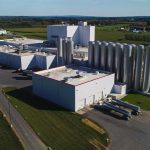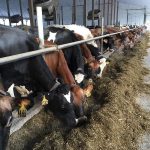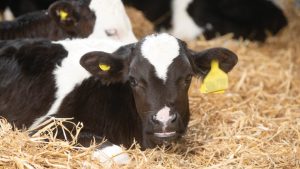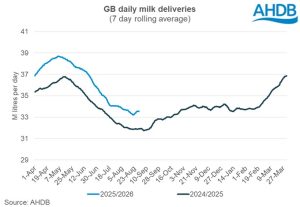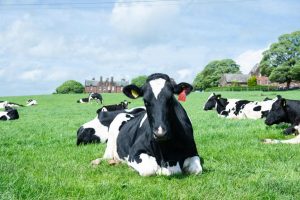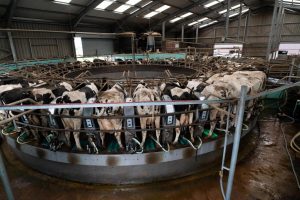
The 25 per cent increase, which equates to 33 litres of additional milk per year for every person in Scotland, has seen milk being trucked to England in order to find a market for it.
Muller said this had resulted in more than 6,000 tanker movements travelling a total of 2.5 million miles, meaning it was not sustainable and highlighted ‘significant environmental consequences’.
Following a month-long review, Muller said 14 out of 230 dairy farms and suppliers would be served a year’s notice.
These are all north of Aberdeen – areas which present heightened or complex logistical transport challenges for Muller. Any businesses which find an alternative buyer before the end of their notice period will be allowed to go.
Charge
The processor will also introduce a tiered transport charge for dairy farmer suppliers in Scotland from February 2020 ‘with the fastest expanding dairy farmers shouldering a proportionately higher charge than those who have grown production more modestly’.
Rob Hutchison, milk supply director for Muller Milk and Ingredients said: “We fully appreciate these measures will be extremely unwelcome and destabilising for our farmer suppliers particularly in the North East of Scotland, but the current situation is unviable and we must act.
“We completed the largest single investment in fresh milk processing in Scotland in more than a decade at our dairy in Bellshill last year and we will continue to do what we can to stimulate new demand for fresh milk.
“But with fresh milk already in 96 per cent of the nation’s fridges and overall consumer demand for the product in marginal decline, the reality is that it is extremely unlikely that this sector will soak up the heightened levels of milk production from farms which we have seen.”
Muller will now work with affected dairy farmers to help them adjust to the changes.
During the review period, Muller sought views and input from the Muller Milk Group farmer board elected to represent dairy farmers, NFU Scotland and Scottish Government.
NFU national dairy board chairman Michael Oakes said: “This latest announcement from Muller, coming just a fortnight after the collapse of Tomlinsons Dairies in Wales, will raise even more concerns that the liquid milk market in the UK is broken.
Risk
“Tight margins throughout the dairy supply chain have meant many businesses are failing to achieve sustainable returns which is threatening the long-term prosperity of the sector and leaving farmers carrying much of the risk.
“The NFU has written to the Environment, Food and Rural Affairs Select Committee calling for an urgent investigation into the country’s liquid milk processing sector to help safeguard the future of British dairy and to determine how industry can work together to create a more robust and resilient market for both farmers and processors.”
NFU Scotland president Andrew McCornick added: “This is clearly devastating news and the livelihoods and viability of all those Scottish dairy farmers supplying Muller have been undermined by the outcomes of this review.
“Given the considerable commitment and investment made by dairy farmers, we now have producers looking to find a new buyer in the next year if they wish to continue milking cows while others, through haulage charges, face a significant cut in income at a time when milk prices are struggling to cover the cost of production.”
Transport Charge for surplus volumes –
• Greater than 15% expansion – 0.85ppl on all litres produced
• Above 5% to 15% expansion – 0.55ppl on all litres
• Up to 5% expansion – 0.25ppl on all litres
• Base year for calculation – 2019 v 2017 actual 12 months production
• The charge will apply across all farms and groups except Aberdeenshire farms who already pay a transport charge
• Charge rates will be reviewed annually with changes in customer demand and farm supply volumes reflected in the review
